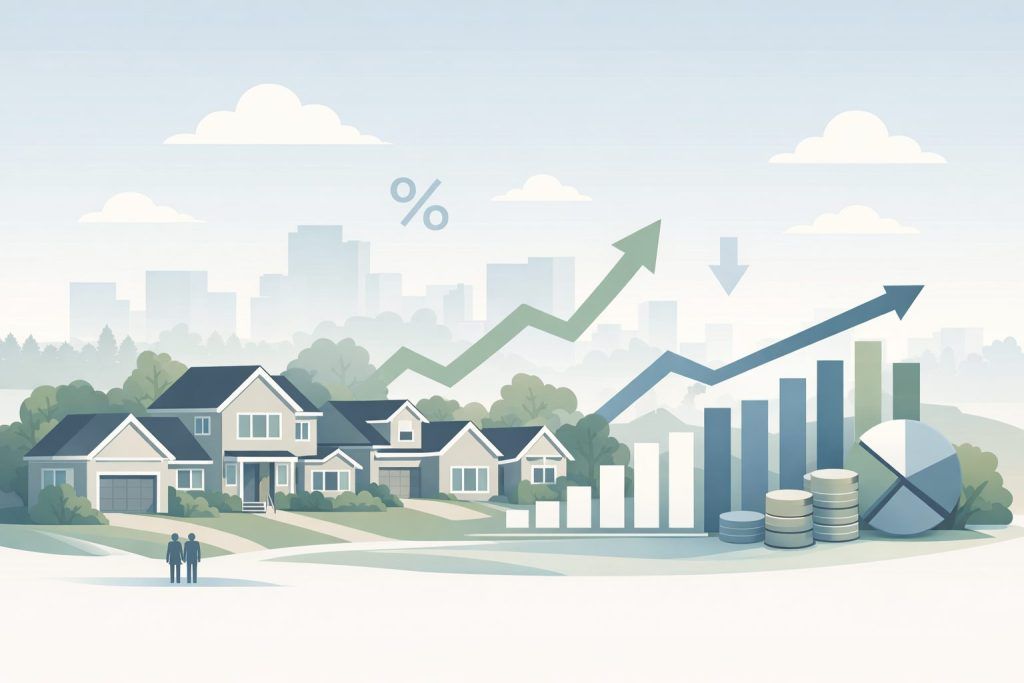
Spring Market - What Is It and When
Given many Canadians have a strong interest in real estate, or at least a general awareness of the goings on in the real estate market, it’s surely no surprise that many have opinions on the topic. One thing that we hear often when chatting about real estate is the idea that spring is the best time to sell. “You gotta wait for spring to get the best price,” they say, followed by “right?” as if they weren’t fully sure of their assertion. We would be doing a disservice to our clients if we said it was that simple. So, what is the spring market, when is it, and is it actually the best time to sell?
WHAT IS SPRING MARKET?
Spring market is typically characterized by greater volumes of showings and, ultimately, sales when compared to other points in the year. There’s this idea that with improving weather, more buyers will be out shopping for houses. Consequently, when sellers believe more buyers have come out of their supposed winter hibernation, they want to bring their properties to market to coincide with what they believe to be greater demand. And, in a general sense, this is often how things play out. We have loads of market data showing the cyclical and seasonal nature of real estate sales – lots of activity in the spring, typically followed by a summer lull, before another secondary uptick in sales in the fall, and quieter winter months. But, in reality, the spring market isn’t always in spring.
SO WHEN IS SPRING MARKET?
Roughly speaking, the spring market is the time after the cold winter months and before everyone takes off on summer vacations. That much was probably obvious. However, it tends to be a bit more nuanced than that. For example, if we have a mild winter, the spring market may start sooner. In fact, many Realtors would likely agree that while February technically falls in the winter, it’s often when we start seeing increased demand. In this scenario, that could mean that if you wait for the snow to melt and the flowers to bloom, you’ll have potentially missed a prime opportunity to have your house in front of buyers during a period of peak demand. Conversely, we’ve seen other factors such as rising interest rates or changes to mortgage rules land mid-spring causing buyers to retreat to the sidelines. When this happens, the busiest period for sales may not be in spring at all – the so-called spring market may very well be in summer or fall.
WHEN IS THE BEST TIME TO BUY OR SELL?
The reality is there’s a lot more than just the weather and the associated seasons that determine opportune times to buy and/or sell. The simplest answer we can give you is that the best time to buy and/or sell is when it makes sense for you and your family. But, if answering this question by looking only at market conditions, the best time to sell is when inventory is low and demand is high – or, if you’re a buyer, your best opportunity would be when the market is soft. This would be characterized by high inventory, low sales, and houses sitting on the market for lengthy periods.
Of course, most people need to balance a wide array of factors such as interest rates, changes in regulations, and politics, combined with personal needs. After all, aligning a closing date with the start of the school year could be more important to your family than market factors. Similarly, you may be experiencing a job change, a marriage or divorce, a new baby, retirement, or any number of other personal situations.
So, while in an ordinary year that follows typical seasonality, spring may very well yield the best options for buyers and the highest prices for sellers, there’s so much more to consider. When we work together, you’ll be armed with data and real-time insight on how the market is performing. Whether you have flexibility in when you buy and/or sell, or if your timeline is more rigid, we can develop a strategy that meets your needs and balances market factors. Many times – and this is especially true for those upsizing – it’s more about the price differential between a purchase and a sale, so buying and selling in any market could still work very well for you. The most important thing is for us to sit down to come up with a solid game plan.
GET IN TOUCH
For more insight on how to best prepare for buying and/or selling real estate, or if you have any questions about the market, please reach out anytime. To ensure you’re getting the latest market information for your neighbourhood and the best advice on how to navigate the current market, we are always happy to help.
NOT RECEIVING OUR NEWSLETTER?
Send us an email so we can add your name and address to our monthly mailout.
We look forward to connecting
DK and Amanda
Share this Post






